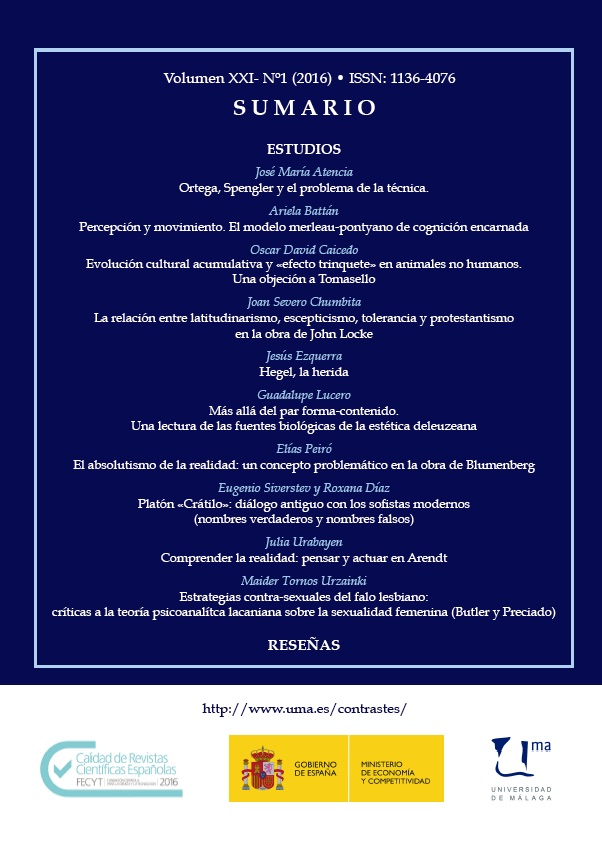Plato «Cratylus»: An ancient dialogue with modern sophists (true names and false names)
DOI:
https://doi.org/10.24310/Contrastescontrastes.v21i1.2313Keywords:
Language, Discourse, Idea, Name, False, Consciousness, ExistenceAbstract
The article discusses Plato’s theory of language, in the form as it is presented in the Cratylus dialogue. The article elaborates on Plato’s idea that words designate the nature of things they name if the language is used in the correct way. The authors suppose that Plato’s methodology of the interpretation of words can be applied for analyzing self-consciousness of modern man who lives in the era when the traditional ethical values are in crisis.Downloads
Metrics
Publication Facts
Reviewer profiles N/A
Author statements
Indexed in
-
—
- Academic society
- N/A
- Publisher
- Universidad de Málaga
Downloads
Published
How to Cite
Issue
Section
License
This journal provides immediate free access to its content under the principle of making research freely available to the public. All content published in Contrastes. Revista Internacional de Filosofía, are subject to the Creative Commons Attribution-NonCommercial-ShareAlike 4.0 license whose full text can be found at <http://creativecommons.org/licenses/by-nc-sa/4.0>
It is the responsibility of the authors to obtain the necessary permissions of the images that are subject to copyright.
Authors whose contributions are accepted for publication in this journal will retain the non-exclusive right to use their contributions for academic, research and educational purposes, including self-archiving or repository in open access repositories of any kind.
The electronic edition of this magazine is edited by the Editorial Service of the University of Malaga (Uma Editorial), being necessary to cite the origin in any partial or total reproduction.










5.png)
